State
Tribe Name
Art Type
short description
Illam, the poet behind “Yar Keh Ge Khawar Karno Ni Chango,” is known for his insightful reflections on relationships, values, and self-reliance. His poetry often critiques societal behaviors, urging readers to reflect on themes of authenticity and contentment. Through his verses, Illam navigates the complexities of friendship and trust, advocating for a grounded approach to life. His unique perspective encourages people to value personal integrity and rely on themselves rather than external validation or material possessions.
Thumbnail

Filter Postion
Right
Filter Background
Off
Theme
Filter Header Image
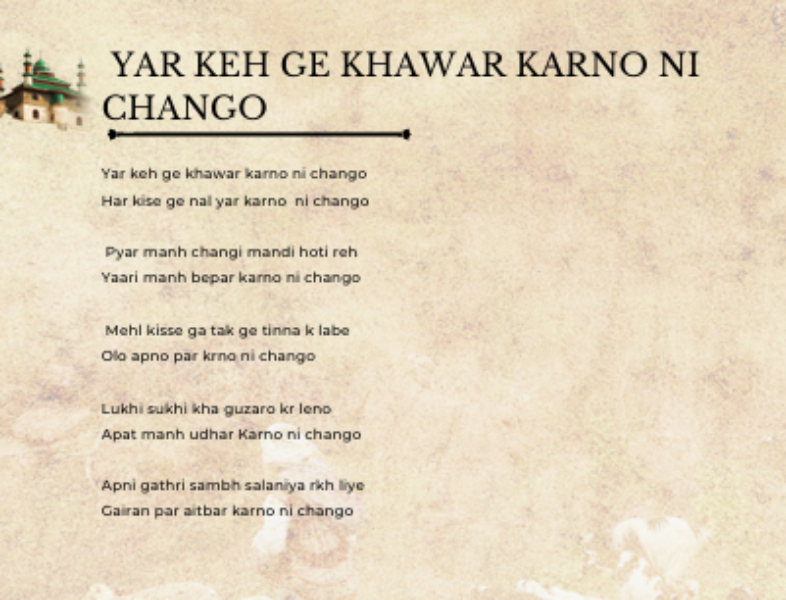
content
Image
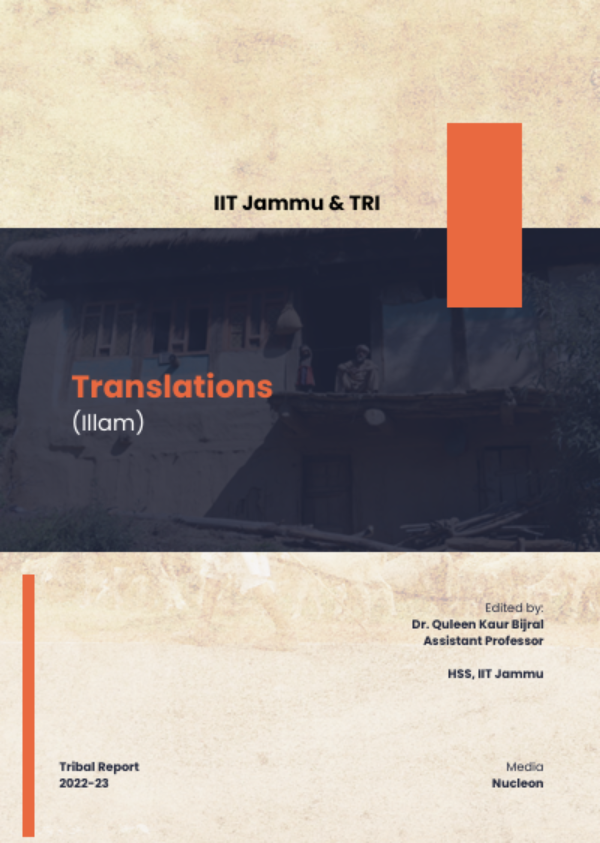
description
Illam, the poet behind “Yar Keh Ge Khawar Karno Ni Chango,” is known for his insightful reflections on relationships, values, and self-reliance. His poetry often critiques societal behaviors, urging readers to reflect on themes of authenticity and contentment. Through his verses, Illam navigates the complexities of friendship and trust, advocating for a grounded approach to life. His unique perspective encourages people to value personal integrity and rely on themselves rather than external validation or material possessions.
Image Mode
portrait
Image
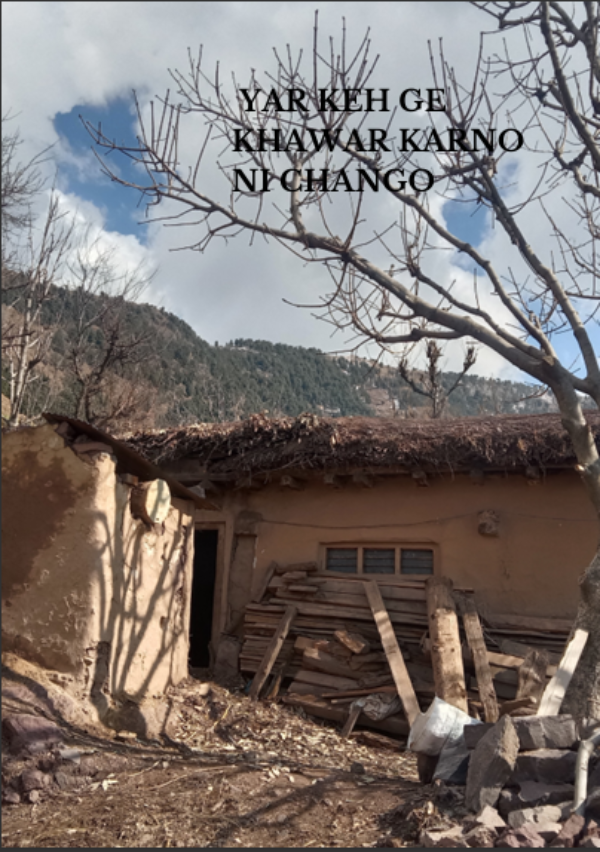
description
In a straightforward narrative, the author introduces words of wisdom that embody friendship and real-life tendencies: just the things a person can relate to. The flowing poem corroborates the conversational style, allowing an intimate dialogue between the reader and speaker. Phrases such as 'it is not fair' contribute repeatedly to the expressiveness of the warning that the poet gives, instilling a sense of teachings in every line. Such form allows Illam to spread his message clearly and effectively, for the style reminds one of simple daily talk.
Image Mode
portrait
Image
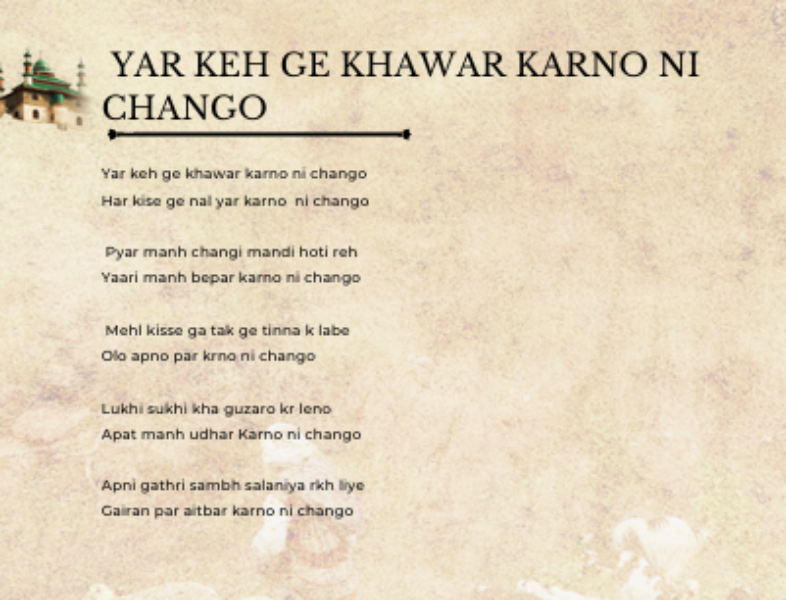
description
The poem does not strictly adhere to a rhyme, which adds to the tone of spontaneity in which it has been done. The loose structure gives a tone of improvisation, which makes the advice feel less rehearsed and more heartfelt. This freeing rhyming pattern also corresponds to the intensity of the poem's sincere individualism and scanty lifestyle. Just as there is no rigid pattern followed by Illam, nature-the spontaneous and at times unpredictable nature of relationships and personal choices-is also captured.
Image Mode
landscape
Image
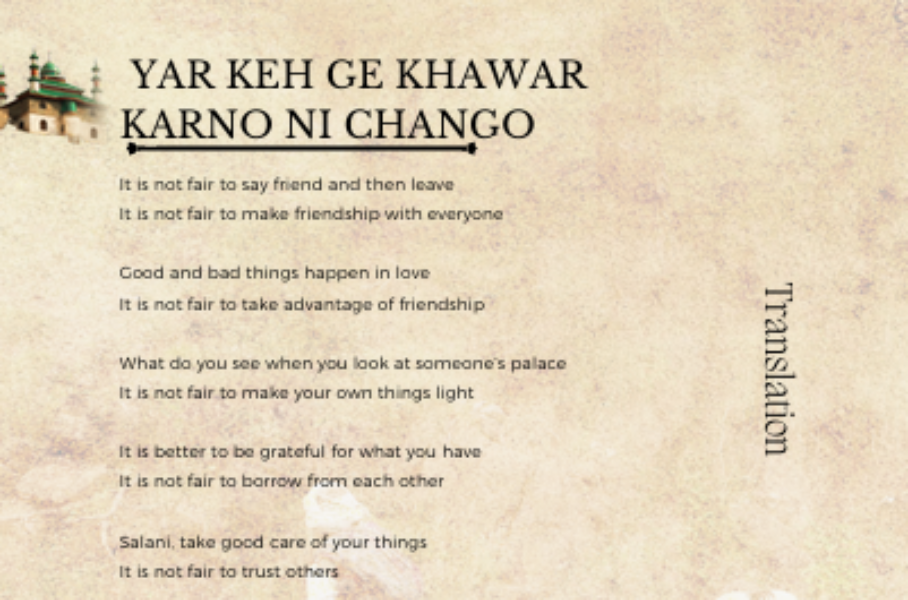
description
The mood of “Yar Keh Ge Khawar Karno Ni Chango” is cautionary and reflective, with themes of trust, self-reliance, and contentment. Illam warns against trusting others too easily or valuing material possessions over personal integrity. The poem emphasizes finding happiness in what one already has and maintaining boundaries in friendships to avoid exploitation. Through this reflective tone, Illam conveys the importance of self-worth and gratitude, encouraging readers to appreciate simplicity over superficial gains.
Image Mode
landscape
Image
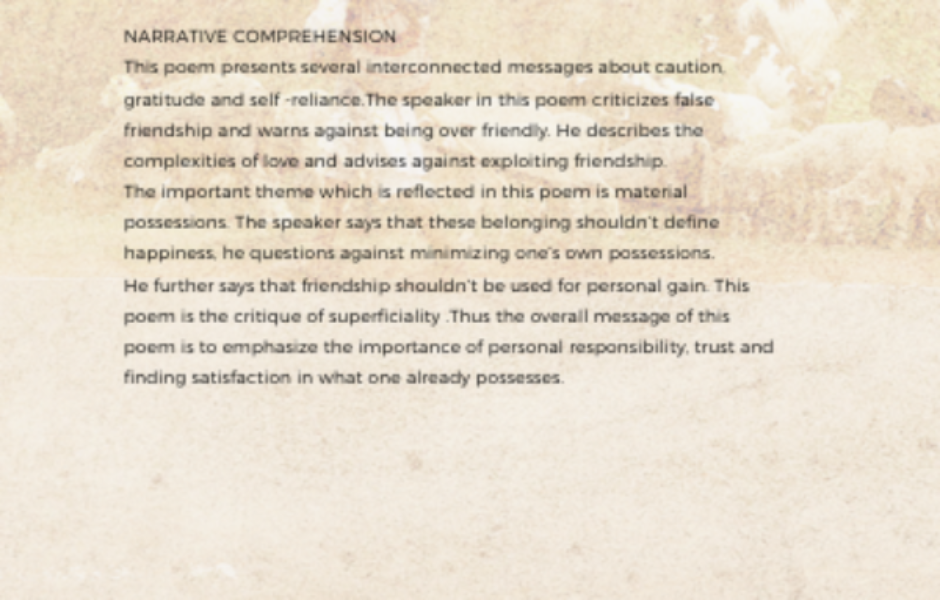
description
The central message of the poem revolves around self-awareness and authenticity in relationships. Illam advises against forming superficial friendships and depending on others, as it can lead to disappointment. The poem’s focus on material possessions and self-contentment suggests that real happiness comes from within. The critique of relying on others or devaluing oneself aligns with the overall message of personal responsibility. This centricity on self-reliance and careful trust forms the core of Illam’s philosophical outlook, urging readers to find value in their own lives and choices.
Image Mode
landscape
promoted
Off
Verified
On
